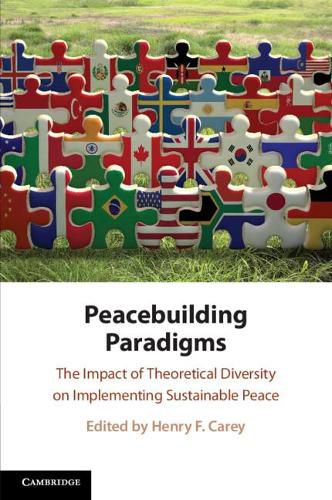Readings Newsletter
Become a Readings Member to make your shopping experience even easier.
Sign in or sign up for free!
You’re not far away from qualifying for FREE standard shipping within Australia
You’ve qualified for FREE standard shipping within Australia
The cart is loading…






Peacebuilding Paradigms focuses on how seven paradigms from the Comparative Politics, International Relations, and Policy Analysis subfields - Realism, Liberalism, Constructivism, Cosmopolitanism, Critical Theories, Locality, and Policy - analyze peacebuilding. The contributors explore the arguments of each paradigm, and then compare and contrast them. This book suggests that a hybrid approach that incorporates useful insights from each of these paradigms best explains how and why peacebuilding projects and policies succeed in some cases, fail in others, and provide lessons learned. Rather than merely using a theoretical approach, the authors use case studies to demonstrate why a focus on just one paradigm alone as an explanatory model is insufficient. This collection directly at how peacebuilding theory affects peacebuilding policies, and provides recommendations for best practices for future peacebuilding missions.
$9.00 standard shipping within Australia
FREE standard shipping within Australia for orders over $100.00
Express & International shipping calculated at checkout
Peacebuilding Paradigms focuses on how seven paradigms from the Comparative Politics, International Relations, and Policy Analysis subfields - Realism, Liberalism, Constructivism, Cosmopolitanism, Critical Theories, Locality, and Policy - analyze peacebuilding. The contributors explore the arguments of each paradigm, and then compare and contrast them. This book suggests that a hybrid approach that incorporates useful insights from each of these paradigms best explains how and why peacebuilding projects and policies succeed in some cases, fail in others, and provide lessons learned. Rather than merely using a theoretical approach, the authors use case studies to demonstrate why a focus on just one paradigm alone as an explanatory model is insufficient. This collection directly at how peacebuilding theory affects peacebuilding policies, and provides recommendations for best practices for future peacebuilding missions.